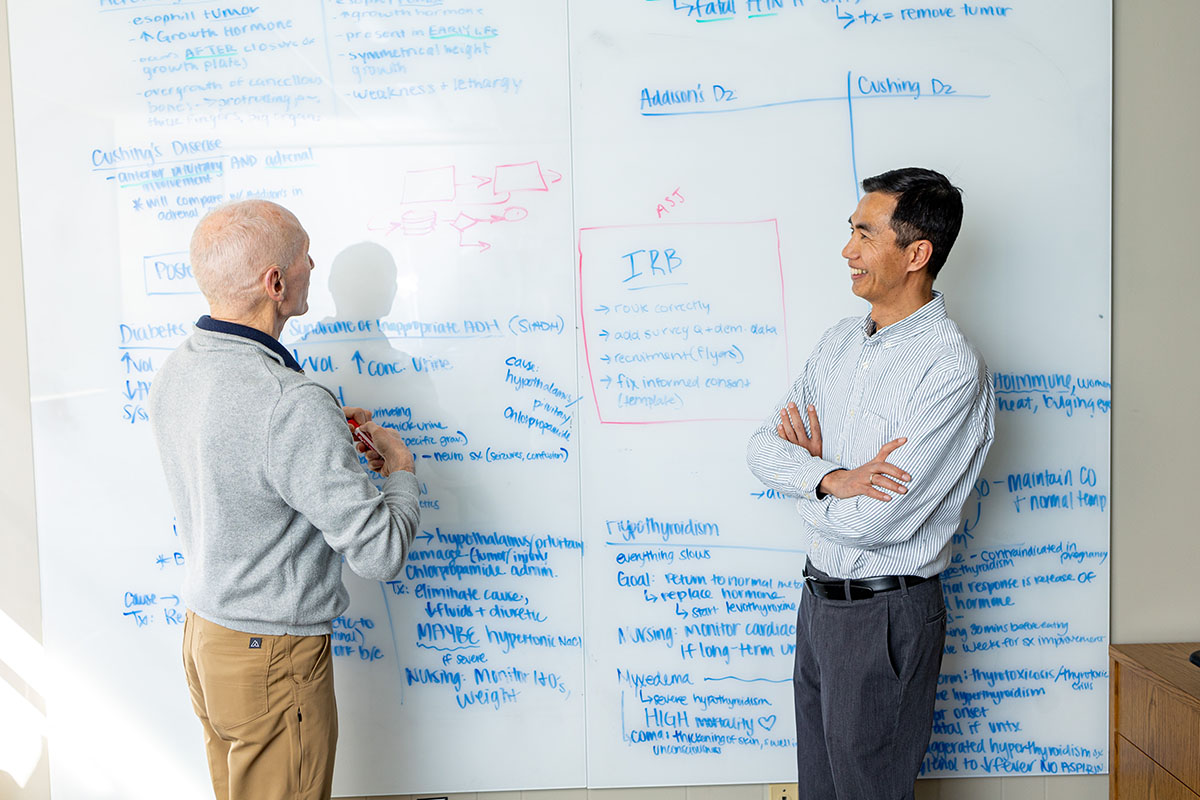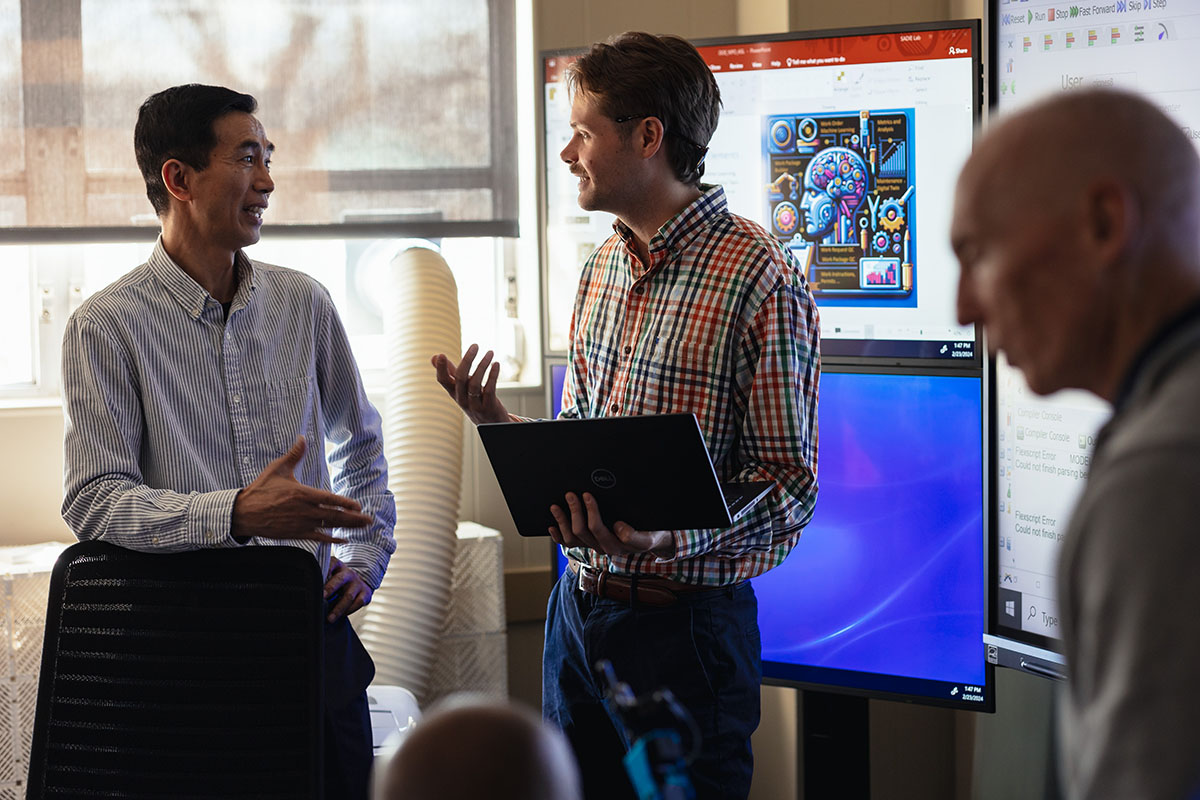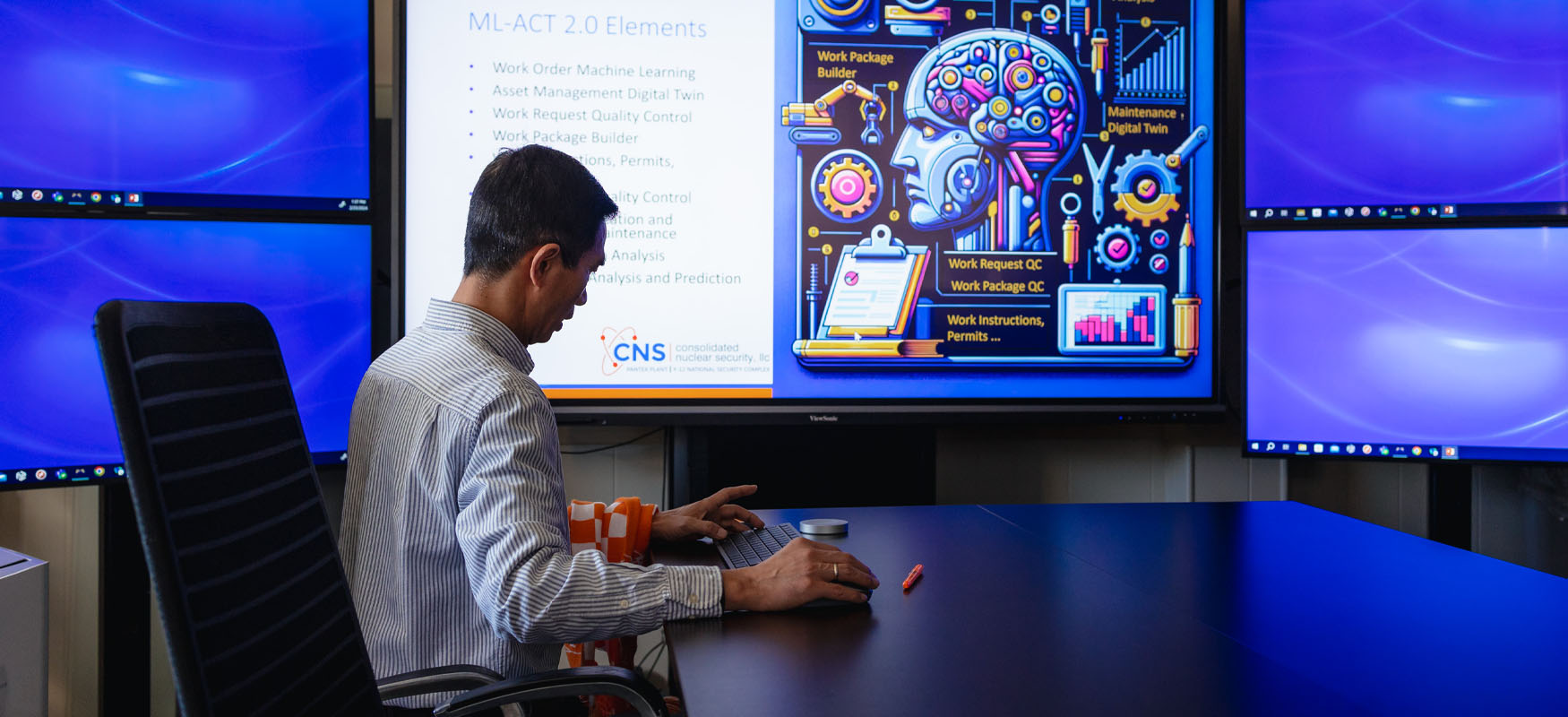College of Nursing and Tickle College of Engineering Launch Groundbreaking Maintenance Optimization Project
The University of Tennessee, Knoxville, College of Nursing, in collaboration with the Tickle College of Engineering (TCE), will begin a research and development initiative aimed at enhancing high-consequence operations. The $980,000 project is sponsored by Y-12 National Security Complex through its Plant-Directed Research and Development Program and is led by Y-12’s Oak Ridge Enhanced Technology and Training Center (ORETTC). The project is expected to take three years to achieve technology that proves these concepts as useful to industry.
High-consequence operations include activities that may expose people and the environment to hazards that could result in extensive injury, death, or significant damage. The focus of this endeavor is the development of two closely interrelated projects: creation of a digital twin for high-consequence equipment operations and development of a machine learning initiative to automate maintenance requests and documentation workflows.
These technologies, when linked, create a representative simulation of how all the systems in a factory operate so personnel can practice operating through abnormal conditions. Examples of these conditions include an emergency response to a safety mechanism on a machine breaking or safely operating at maximum effectiveness to meet production targets, which requires limiting outages.

The digital twin project advances high-consequence operations technology by using a virtual replica of assets to simulate events at the edge of the operating envelope or in abnormal conditions. This approach uses 3-D visualization and augmented reality. Use of a digital twin should reduce downtime and enhance the safety and efficiency of high-consequence operations across various industries.
The machine learning project takes advantage of Natural Language Processing (NLP) and big data analytics to analyze maintenance records and operational data. This innovative approach will facilitate the generation of accurate work orders that also reduce risk. By streamlining the maintenance process, this project promises to significantly boost operational efficiency and cost-effectiveness.
“Partnering with the University of Tennessee provides Y-12 and the National Nuclear Security Administration’s Nuclear Security Enterprise access to the leading experts in NLP and big data analytics. This research develops and proves the concept for using these technologies with digital twins and spatial visualization to make work safer and more efficient” says Dr. Ashley Stowe, director of ORETTC. “Our plan is to extend the use of this technology to employ digital twins in the nuclear production environment.”
ORETTC leads Y-12’s efforts for developing and implementing digital twin technologies to support its vital national security mission.
The project’s significance extends beyond high-consequence environments, including potential applications in health care and nursing, such as the following:
- Predictive modeling for health care operations: Health care organizations can use digital twin technology to create virtual replicas of medical equipment and how they conduct their operations, enabling assessments and improvements of operations.
- Patient care optimization: Machine learning techniques can analyze patient data, assisting nurses and health care providers in creating personalized care plans.
- Health care information management: Machine learning algorithms can optimize the use of vast amounts of patient information to support patient treatment and public health.
“We are excited to embark on this journey to enhance high-consequence operations,” said Tom Berg, lead researcher at the Applied Systems Lab. “By harnessing the power of digital twin and virtual reality technology and cutting-edge machine learning, we believe we can usher in a new era of efficiency, safety and security in critical operations.”

“This collaboration represents a pioneering step in the application of augmented reality and digital twin technologies,” said Xueping Li, professor in TCE’s Department of Industrial and Systems Engineering. “Collective expertise will significantly contribute to advancing high-consequence operation practices, demonstrating the powerful synergy between engineering and practical application in real-world scenarios.”
This collaboration between nursing, engineering, and industry leaders is a testament to the commitment to advancing technology and enhancing operational practices in maintenance.
Contact
Kara Clark (865-974 9498, kmclark2@utk.edu)
